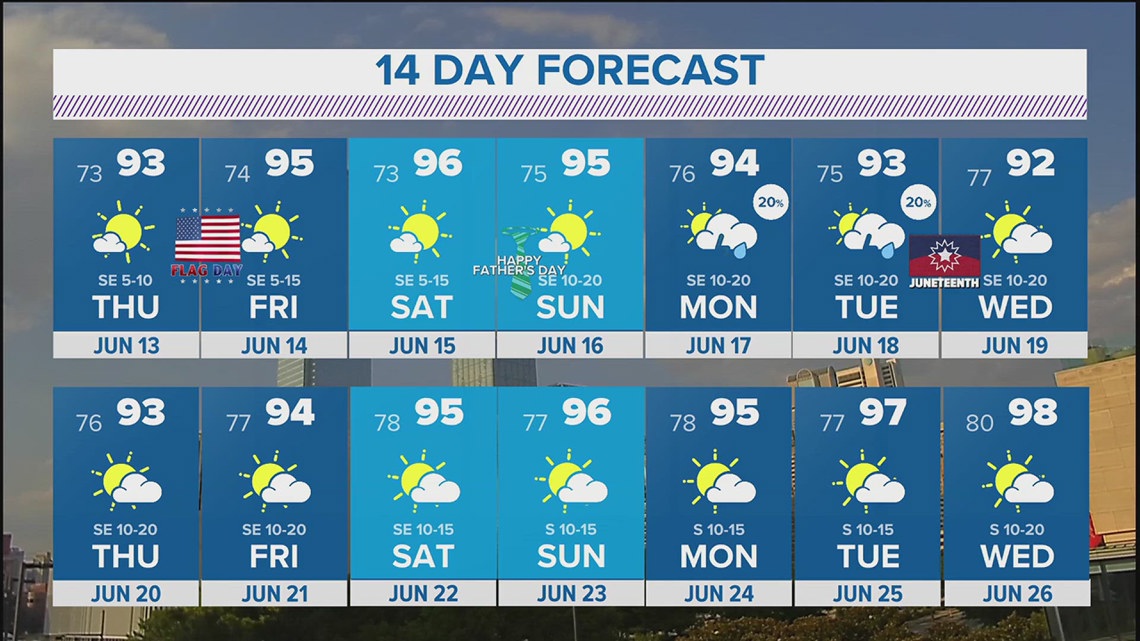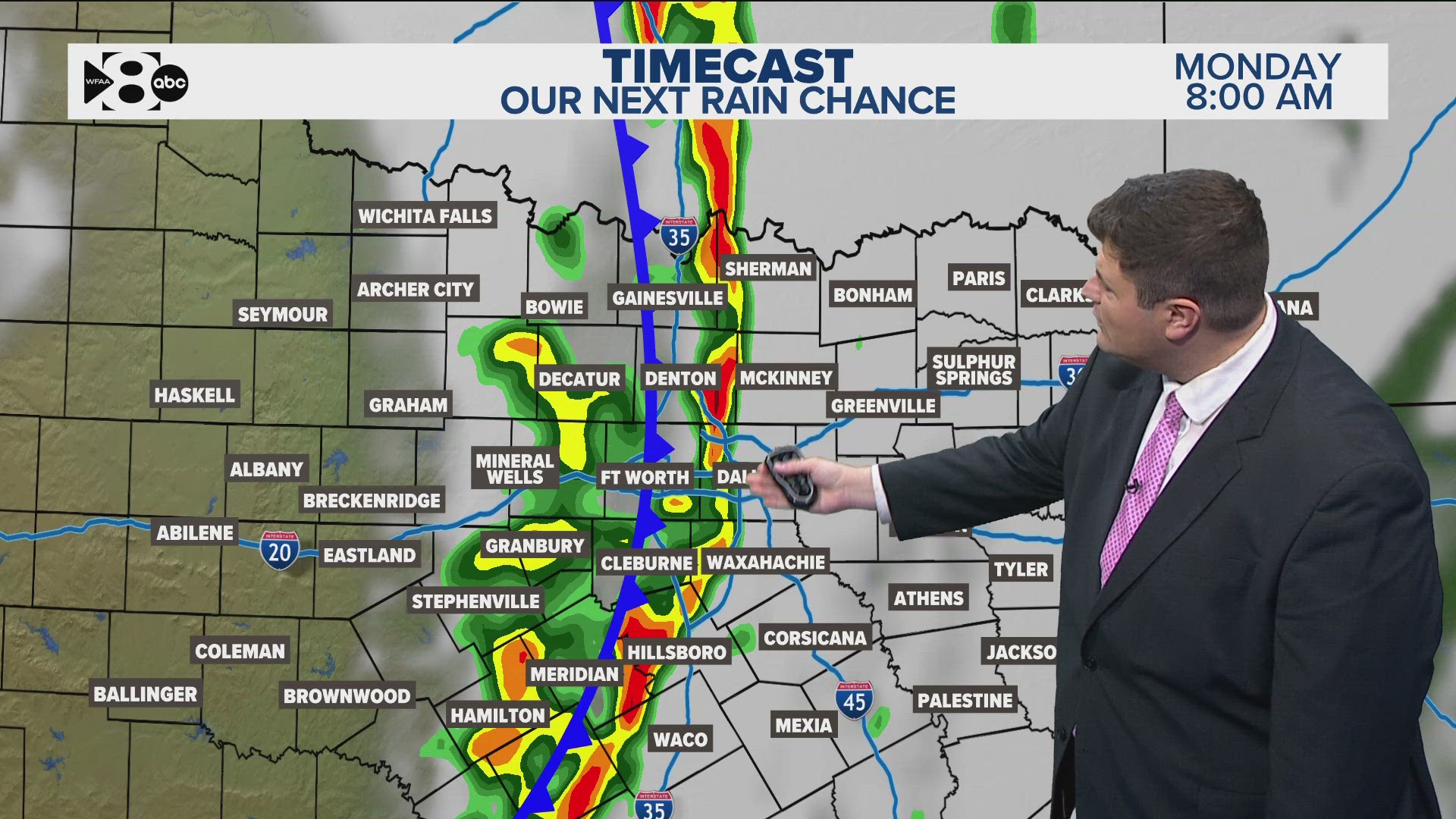DALLAS — If you've been watching our WFAA weather team's forecasts lately, then you know that the summertime heat is just around the corner.
And while their current 14-day forecast doesn't have any 100-degree high temperatures in it yet, that could change at seemingly any point. I mean, look at their predicted high temps for later in June:


Yes, the "gates of hell" -- as WFAA Chief Meteorologist likes to call our brutal summers around here -- are set to open any day now.
But how bad will it be? How many 100-degree days will North Texans be forced to endure this summer?
Are we in store for a summer like 1980, when we suffered a record-setting 42 consecutive days of 100-degree temperatures, including every day of July? Or how about that summer in 2011, when we set a record for most 100-degree days in a year at 71?
Or, with any luck, will this summer be a relatively mild one for North Texas?
To find out, as we tend to do every year around this time, we decided to reach out to our in-house experts and simply ask them. For the third year in a row, we tasked all five of our station's meteorologists with guessing how many 100-plus-degree days we'd see throughout the region in 2024.
For two years running now, Greg Fields has come the closest out of all of our meteorologists. He guessed 35 days in 2023, when we dealt with 55 of them, according to the National Weather Service. And, in 2022, he guessed 40 days when saw 47.
Will he take the crown again this year? Only time will tell.
For now, all we can do is speculate.
Below, presented alphabetically, our meteorologists share their best guesses on the matter. Interestingly, the range of their guesses -- or lack thereof -- represents the closest to a consensus we've seen in three years of this exercise.
Pete Delkus: 22 days
I’m going with 22. It’ll be hotter than normal (we average 20 triple-digit days per year), but with it being the eighth-wettest spring on record, I don’t see the summer of 2024 being a top-10 hottest summer like the summer of 2023 when it was the fourth-hottest summer with 55 triple-digit days.
Greg Fields: 18 days
This year reminds me of 2015 in terms of rainfall. That year we only had 15 100-degree days. Based solely on that, I think we'll be slightly below average again this year. I'm going with 18.
Jesse Hawila: 21 days
This year will be a bit of a tricky one. We are slipping back into La Niña, which can mean much hotter than normal summers. However, our soil moisture is really high in the area from all of the rain we had in the spring. So, I think we will see a near-normal total, which is 20. Given the rain, and the wettest springs on record typically being followed by fewer than normal 100-degree days, it really does make sense to guess lower than normal. But I’m offsetting that because of the incoming La Niña. So my guess is 21.
Kyle Roberts: 20 days
It was the eighth-wettest spring on record. Historically, a wet spring means a good chance at not seeing a record-setting summer -- and typically a below-normal summer. 2023 was the third-hottest summer on record, and 2022 was the fifth-hottest. Statistically speaking, the odds of this summer being a Top 5 hottest summer is low. The wild card is El Nino. We're transitioning out of an El Nino into a Neutral pattern, with La Nina developing by late summer into fall. As far as I can tell, a Top-10 wet spring and a weakening El Nino has not been observed since we've been keeping accurate El Nino/La Nina records (since 1950). So, there really is not a comparable year in the record books that we can look toward! Because of the weakening El Nino and the lack of a comparable year, that makes me cautious in predicting a very well-below-normal triple-digit number. Taking all of the above into consideration, I'll go 20 triple digit days, which is the average number for a summer.
Mariel Ruiz: 19 days
This is just a hopeful number. The global weather pattern is different than the last three years. That and the wet spring “should” keep us with below-normal 100-degree days. Normal is 20.



